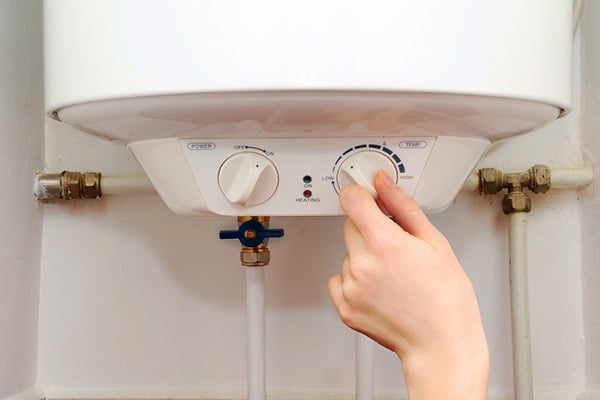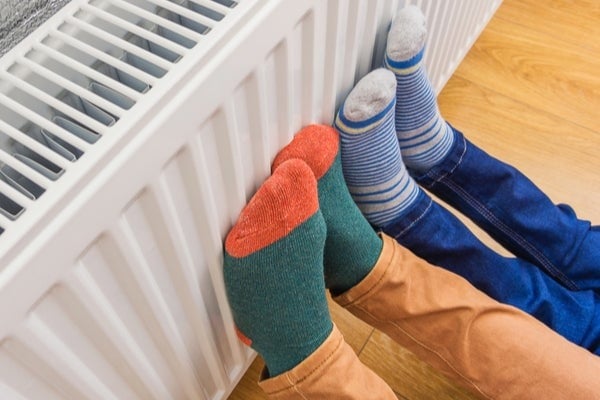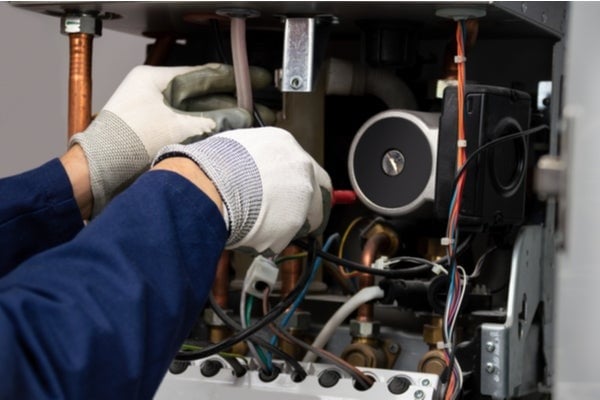Your Guide to Boiler Heater Systems & Maintenance

You're experiencing a power outage, here's how to heat a room without electricity. Learn more about alternative heat sources for power outages.


You're experiencing a power outage, here's how to heat a room without electricity. Learn more about alternative heat sources for power outages.
Does your home have a boiler? If so, do you know what type of boiler it is? Learn how a steam heat boiler differs from forced air boilers and how each type affects energy efficiency.
Many modern homes use different types of boilers to heat water and distribute steam, hot water, or warm air to heat the residence. If your home uses a boiler heating system, you’ll want to make sure it’s in good working condition before the coldest winter months arrive. To help you get ready, we're going to touch on each type of home boiler and provide some maintenance tips to help keep your system running efficiently this winter—and throughout the year.
But first, let’s understand the differences between a furnace and a boiler. While many people refer to any system that heats their home as a furnace, the two are different. The main difference is that a furnace heats air and uses ductwork to circulate that air through your home. Generally, a boiler heats water that moves either water or steam through copper pipes to keep your home warm and comfortable via a boiler radiator; some boilers use a combination of heated water and air and both copper tubing and ductwork.
Steam and Water Heating Systems

Home boiler systems and radiators aren’t typically installed in new homes, but this type of system is still used in many older homes, apartments, multifamily dwellings, and older office buildings.
In steam heat boiler systems, a boiler heats water, usually by means of gas or fuel oil, and turns it into steam. The steam travels through pipes to radiators or convectors, which give off heat and warm the rooms in your house. As the steam cools, it condenses back into water and returns to the boiler to be heated again.
Hot water boiler systems operate on the same principle, pumping hot water through the system to heat the boiler radiators. A variation of this system distributes hot water and heat through tubing embedded in the floor or through baseboard units mounted along the walls.
Advantages
Even though these steam and water systems are somewhat dated, they have several advantages:
Disadvantages
Thinking about coverage?
Security for your home. Protection for your budget.
Forced Air Boiler System
In this variation of the boiler heating system, water is heated in the boiler and sent to a hydronic coil, similar to the refrigerant coil in an air conditioning system. When the hydronic coil heats up, a blower distributes warm air via ductwork throughout the home or building, and the water circulates back to the boiler to be reheated.
Advantages
Disadvantages
High-Efficiency vs. Standard Boiler Replacement
Federal regulations require that new boilers display their Annual Fuel Utilization Efficiency (AFUE) rating so consumers can make comparisons. High-efficiency boiler installation tends to be more expensive because a house generally must be retrofitted to handle the boiler; but that cost tends to be offset by lower utility bills.
Energy.gov notes that high-efficiency heating systems have an AFUE rating between 90 and 98 percent, while older models have AFUE ratings between 56 to 70 percent. So, the more efficient the system, the less heat loss your home will experience (and the more you’ll save on your heating bill).
Boiler Maintenance

Regardless of the differences between various systems, proper boiler maintenance is needed to keep your system running efficiently.
It’s a good idea to have your boiler system checked at least once a year by a licensed residential boiler repair professional. A skilled technician can make the checks and adjustments needed to ensure that your boiler operates efficiently and safely.
Between the professional service calls, there are things you can do to help maintain your boiler system. Add these items to your winter maintenance checklist, and your boiler should be in tip-top shape for the cold weather.
Now that you’re armed with all there is know about residential boiler maintenance, you can stay warm and cozy all winter long.
However you choose to heat your home this winter, you'll want to protect the investment you've made in your heating system. To further minimize the costs associated with issues with your home's heating system, get an American Home Shield® home warranty, which includes boiler heating systems. Our flexible coverage plans can help you protect your time and wallet when unexpected breakdowns occur. Read more about how a home warranty works.
Explore how a heating system protection plan makes sure you’re not left in the cold.

AHS assumes no responsibility, and specifically disclaims all liability, for your use of any and all information contained herein.
Have a plan for your home when things don't go according to plan
Shop Home WarrantiesStaging